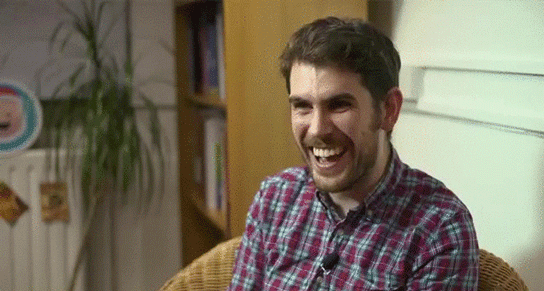Episodes 23 and 24
Still a MOTW show with a noodle shaped monster psychologically noodling Rei's noodle and a human shaped one doing Shinji's noodle in with noodles upon noodles!
Episodes 25 & 26
Psychological noodling with noodles upon noodles upon noodles.
Noodles, Noodles, Noodles, Noodles, Noodles, Noodles, Noodles, Noodles, Noodles, Noodles, Noodles, Noodles, Noodles, Noodles, Noodles, Noodles.
"I might have been born just so that I could meet you" Just when Shinji is at a new low with all his friends gone Anno kicks him again by introducing him to someone who is interested in him, then confuses the poor soul with a confession offering a different option after lusting after the girls, and finally telling Shinji to kill him just to push him over the edge.
What has poor Shinji done to receive Anno hatred so much, I guess the answer is shown in episode 25, which is Shinji is Anno and he hated himself, but episode 26 is him learning to love himself flaws and all.
It was basically therapy for him!
It didn't really end the story and leaves a load of questions. What caused the Second impact bar some form of human meddling, what was the Spear of Longinus, what was the that on Gendo's hand, have they really prevented the Third Impact, what did Kaworu mean by Lilith and not Adam (clue:
Lilith - Wikipedia) Lots of which EoE does go into, although some of it was probably added in to directors cuts to be solved by EoE.
I think I'll still leave it as an
8/10
Theres a quick frame of Misato shot dead at one point and wondering how to interpret it.
And Ritsuko!
(This would very much tie in with @ayase's view that The End of Evangelion is not a replacement for TV episodes 25 and 26.)
Indeed. Flicking through the manga which leaves off at 24 and goes into EoE:
Ritsuko is shot by Gendo and Misato is shot protecting Shinji. Although there is no body as she then proceeds to produce a grenade and pull the pin...
By basically having no animation budget left
I've seen it said that it wasn't just budget they ran out of, but time. This comes down to how Anno worked by writing episode by episode, he had a plan over all at the start which had to change months before airing due to the Sarin attack and also changed just over half way through, but still meant what actually happens in each episode wasn't known till a few weeks maybe before each one aired. This can be seen with just storyboards being used in the preview at the end from episode 22 onward.
Wikipedia quotes:
Further changes to the plot were made following the
Aum Shinrikyo sect's
sarin gas attack on the Tokyo subway in March.
Azuma Hiroki has said that the original
Evangelion story was "too close to reality" from Anno's point of view. Basically, Anno thought that the original scenario was not suitable for broadcasting, and he feared censorship. However, he also criticized Aum Shinrikyo, because "they lost any contact with reality". For this reason, Azuma stated that
Evangelion "is an intrinsic critique of Aum".
The development of the
Neon Genesis Evangelion series ran close to deadlines throughout its production run. The initial cuts of the first two episodes were screened at the second Gainax festival in July 1995, only three months before they were aired on television. By episode 13 the series began to deviate significantly from the original story, and the initial script was abandoned. The number of Angels was reduced to 17 instead of the original 28, and the writers changed the story's ending, which had originally described the failure of the Human Instrumentality Project after an Angel attack from the moon.
Starting with episode 16, the show changed drastically, discarding the grand narrative concerning salvation for a narrative focusing on the individual characters. This change coincided with Anno's development of an interest in psychology after a friend lent him a book on mental illness. This focus culminated in a psychoanalysis of the characters in the two final episodes. The production ran so close to the airing deadline that the completed scenes used in the preview of the twenty-fifth episode had to be redesigned to work with the new ending.These episodes feature heavy use of abstract animation, flashbacks, simple line drawings, photographs and fixed image scenes with voice-over dialogue. Some critics speculated that these unconventional animation choices resulted from budget cuts, but
Toshio Okada stated that while it wasn't only a problem of schedule or budget, Anno "couldn't decide the ending until the time came, that's his style".
That took a while. I'll have to do the manga comparison later, although the one thing I will say is that Kaworu is introduced earlier, has more scenes and is basically more of a character than a plot device!



